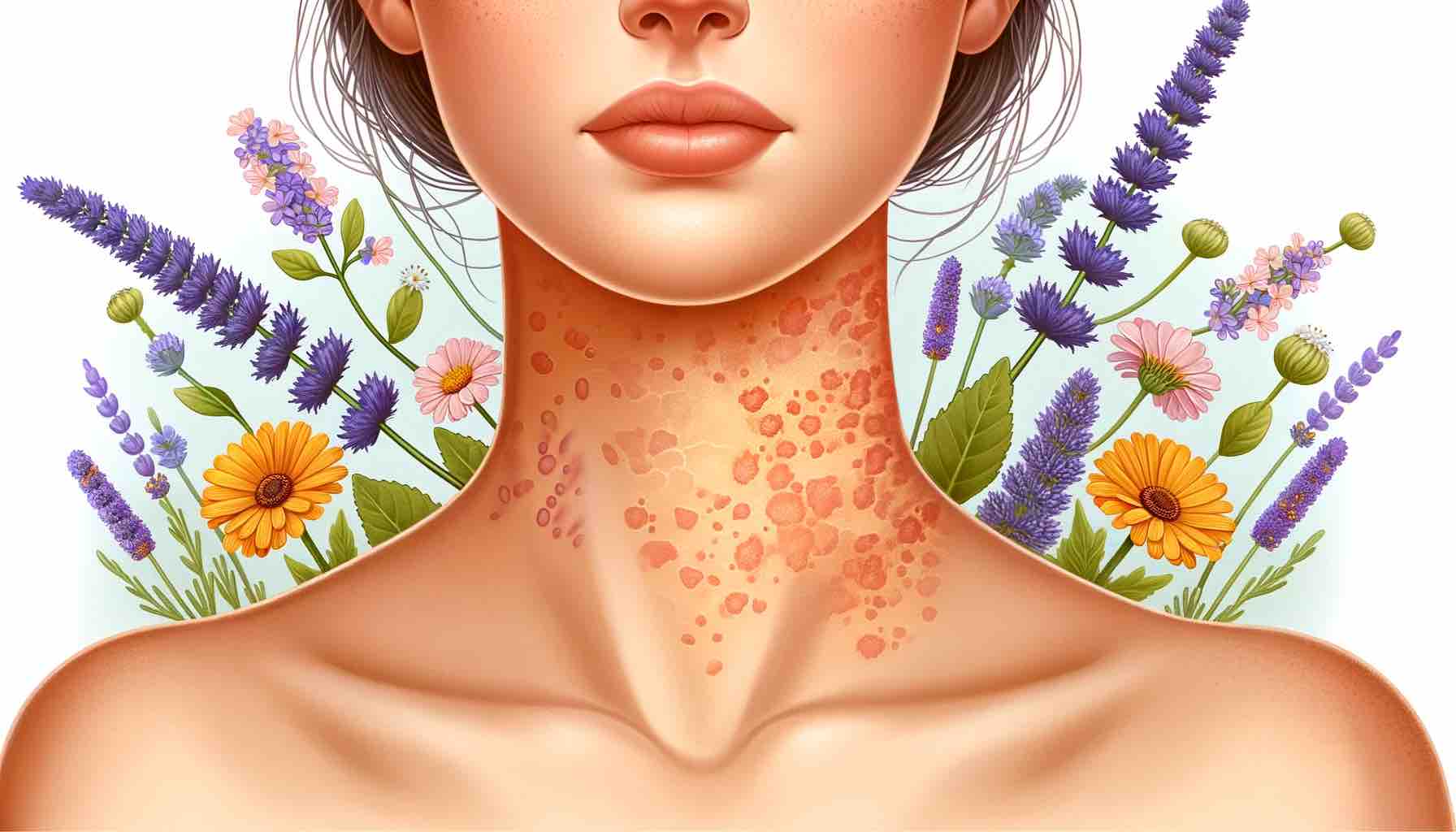
Introduction
Eczema on the neck is a particularly challenging condition, given the sensitivity of the area and its exposure to various environmental elements. This guide is meticulously crafted to provide a comprehensive understanding, practical management strategies, and a pathway to relief for those grappling with neck eczema.
Understanding Eczema on the Neck
Eczema on the neck is a manifestation that requires nuanced care due to the delicate nature of the skin in this area. Understanding its unique characteristics and triggers is foundational in crafting an effective management strategy.
Common Triggers and Causes
- Contact Dermatitis: Items such as jewelry, clothing fabrics, or even skincare products can be culprits in causing irritation. Recognizing and avoiding these triggers is crucial. Learn more about contact dermatitis.
- Sweat and Friction: Due to its location, the neck is susceptible to sweat accumulation and friction from clothing, contributing to eczema flare-ups.
- Environmental Factors: Elements such as weather changes, humidity levels, and allergens like pollen play a role in the condition’s prevalence.
Treatment Approaches
Topical Treatments
- Steroid Creams: While effective, the use of corticosteroids should be approached with caution, especially in sensitive areas like the neck. Explore the side effects of steroid creams.
- Calming Ointments: Ointments infused with natural calming agents like calendula or chamomile can be beneficial.
Natural and Home Remedies
- Oatmeal Baths: A well-known remedy that offers relief from irritation and itchiness. Discover more natural remedies.
- Coconut Oil: Its moisturizing and anti-inflammatory properties make it a suitable option for eczema care.
Dietary Considerations
- Hydration: Maintaining optimal hydration levels is essential for skin health.
- Anti-inflammatory Foods: Consuming foods rich in omega-3 fatty acids and antioxidants can be beneficial. Learn more about diet and eczema.
Expert Advice: Dermatologist-Recommended Practices
- Patch Testing: Identifying specific allergens through patch testing can be a proactive approach to managing eczema.
- Regular Skincare Routine: Establishing a consistent skincare routine ensures that the skin is nourished and protected.
Conclusion: Embracing a Holistic Approach
Navigating through the challenges of neck eczema necessitates a holistic approach that encompasses understanding, management, and continuous care strategies, ensuring that you are well-equipped to manage the condition effectively.
Further Reading
- Exploring Biologics in Eczema Treatment
- Unveiling the Relationship Between Food and Eczema
- Natural Remedies in Eczema Management
FAQs
- What are the common triggers of eczema on the neck? Various factors can trigger eczema on the neck, such as contact dermatitis from jewelry or clothing, sweat and friction due to the neck’s anatomy, and environmental factors like weather and allergens.
- How does diet influence eczema on the neck? Diet plays a significant role in managing eczema. Consuming anti-inflammatory foods and maintaining proper hydration can positively impact the skin’s condition.
- Can natural remedies be effective in managing neck eczema? Natural remedies, such as oatmeal baths and the application of coconut oil, can offer relief by soothing irritation and reducing inflammation.
- What precautions should be taken when using steroid creams on the neck? When using steroid creams, it’s essential to follow the dermatologist’s instructions carefully due to the sensitive nature of the skin on the neck, minimizing potential side effects.
- How can one identify the specific allergens causing neck eczema? Patch testing, conducted under dermatological guidance, can be a helpful method to identify specific allergens causing eczema flare-ups.
- What role does a consistent skincare routine play in managing neck eczema? A regular skincare routine ensures that the skin remains moisturized and protected from potential irritants, aiding in the management of eczema.
- How does sweat contribute to eczema flare-ups on the neck? Sweat can irritate the skin and exacerbate eczema symptoms, making it essential to maintain cleanliness and avoid excessive sweating when possible.
- Are there specific fabrics to avoid to prevent eczema on the neck? Avoiding irritating fabrics such as wool and synthetic materials and opting for breathable fabrics like cotton can be beneficial in managing neck eczema.
- How does environmental humidity impact eczema on the neck? Environmental humidity can either soothe or aggravate eczema. While moisture in the air can be beneficial, dry conditions can lead to skin irritation.
- What are some recommended practices for managing eczema flare-ups on the neck? Implementing a combination of strategies such as identifying triggers, maintaining a skincare routine, and exploring suitable treatment options is recommended for comprehensive eczema management.
Blog Tags
eczema, neck eczema, skincare, natural remedies, dermatitis, eczema triggers, eczema treatment, skin inflammation, eczema management, allergic reactions













